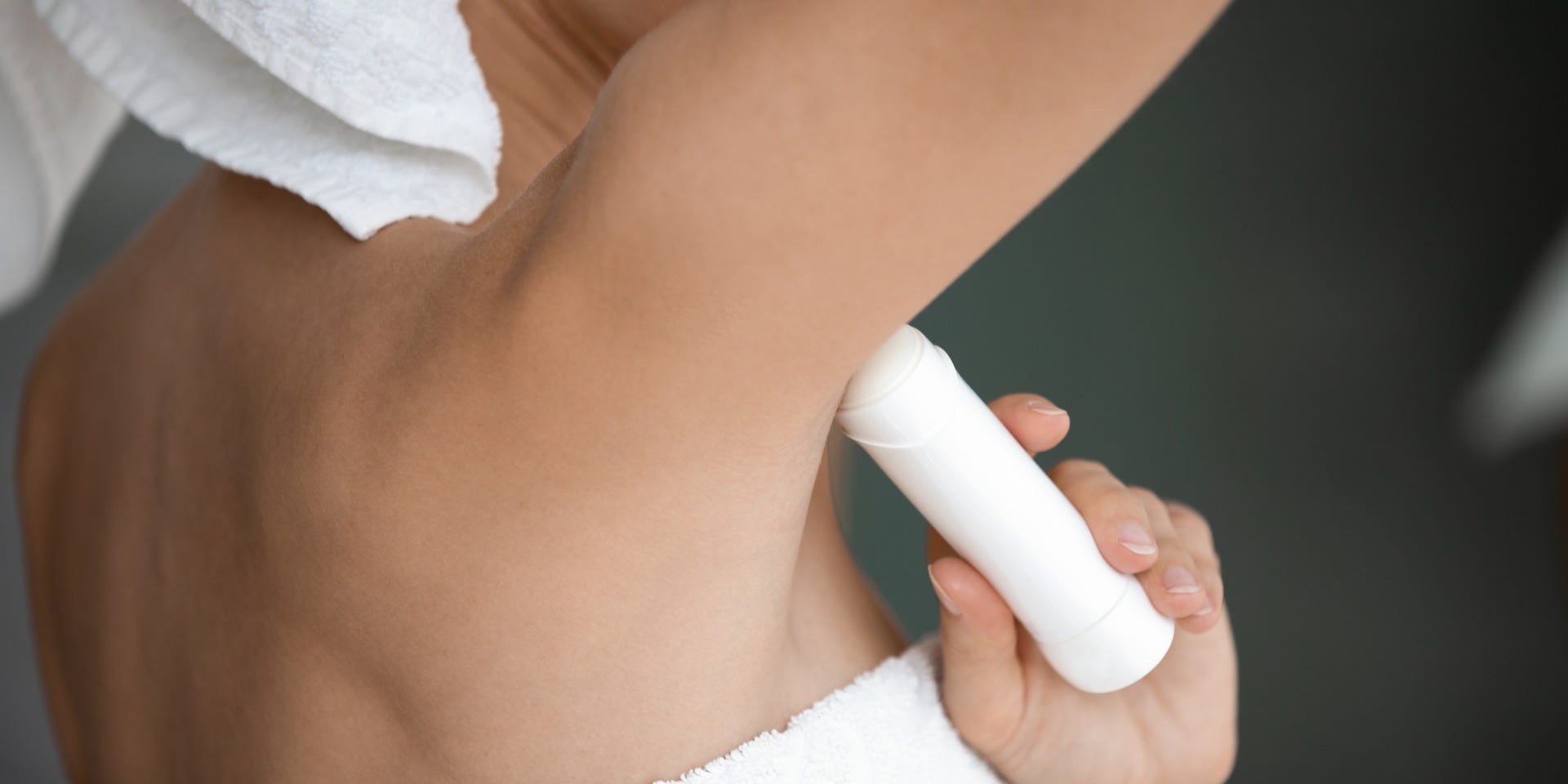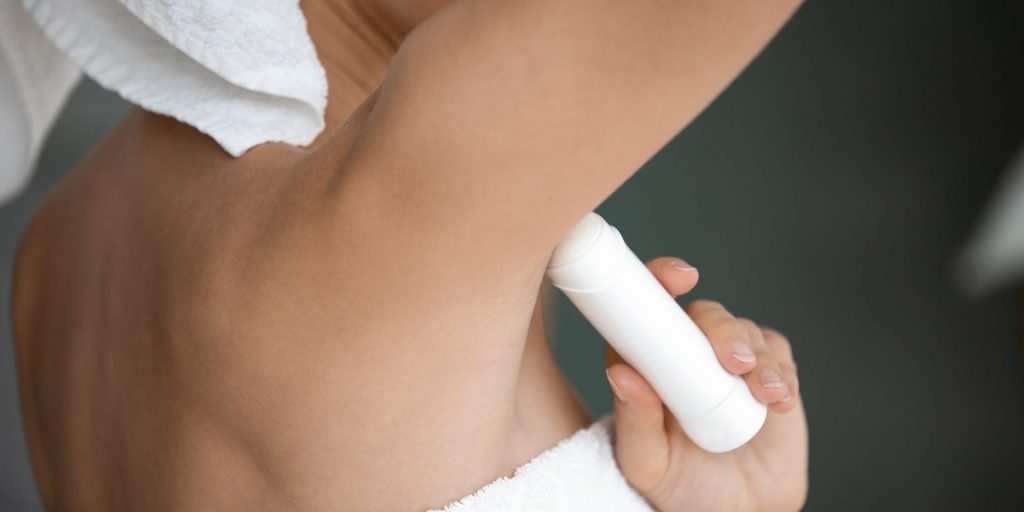
fizkes/Shutterstock
- Deodorant controls the odor associated with sweating, but antiperspirant blocks your sweat glands.
- You should use deodorant if you want to smell fresh and limit odor.
- You should use an antiperspirant if you want to reduce underarm wetness and excessive sweat.
- Visit Insider's Health Reference library for more advice.
Antiperspirants and deodorants serve different purposes. While antiperspirants can reduce the amount you sweat, deodorants can only help eliminate the body odor associated with sweat.
Here's what you need to know about how antiperspirants and deodorants work, their benefits, and which one you should use.
What is antiperspirant?
Antiperspirant is formulated with aluminum chloride and other aluminum compounds, which block the opening of sweat glands known as sweat ducts.
"Antiperspirant is ideal for those who want to decrease wetness or feel they sweat more than usual," says Kiran Mian, DO, a dermatologist in New York.
Sweating is how your body regulates its temperature. As the moisture evaporates from your skin, it cools the body down.
While it's normal and healthy to sweat when you're exercising or feel hot, about 3% of Americans experience a condition called hyperhidrosis, in which they sweat more than usual. For people with this condition, both over-the-counter or prescription antiperspirants can help control the sweating.
What is deodorant?
Deodorant does not stop sweating the way an antiperspirant can, but it does work to control odor associated with sweating.
"Sweat doesn't actually have an odor," Mian says. "Body odor comes from a byproduct of sweat as bacteria break it down."
Deodorants are typically alcohol-based and work by creating a more acidic environment on your skin, which decreases the bacteria that leads to odor.
"Those who don't have a problem with sweating too much but want to deter body odor should use deodorant," Mian says.
How to choose between antiperspirant and deodorant
If you want to control sweating and avoid underarm wetness, you should use an antiperspirant. But if you don't sweat excessively, and just want to limit body odor and smell fresh, deodorant is all you'll need.
Of course, if you use an antiperspirant to regulate your sweating, you'll also reduce body odor - remember, odor is a byproduct of sweat and bacteria.
In fact, according to a small 2005 study published in the Journal of the American Academy of Dermatology, both deodorants and antiperspirants can be effective at controlling body odor.
The study included 53 male participants who completed a 12-day conditioning period in which they didn't use either deodorant or antiperspirant. They then entered into a five-day treatment phase in which they used antiperspirant on one armpit and deodorant on the other.
Researchers rated their body odor at 12 and 24 hours after the first, third, and fifth days of treatment. After five applications, the antiperspirant reduced odor by 29% at 12 hours, and the deodorant reduced odor by 27% at 12 hours.
People with kidney function of less than 30% may not be able to clear the aluminum in antiperspirants out of their system efficiently. The FDA requires antiperspirant labels to carry a warning for those with kidney disease to consult with their doctor before use.
For those without kidney disease, antiperspirants do not pose a health risk and are not harmful for people with or without hyperhidrosis to use, Mian says.
Try a combined antiperspirant and deodorant, all-in-one
If you struggle with both body odor and sweating, there are products on the market that have both deodorant and antiperspirant functions.
Most combination products will say antiperspirant and deodorant, but if it isn't clear, check the ingredients. An antiperspirant will have aluminum listed as an active ingredient. Deodorants usually don't contain aluminum, but do have antibacterials, like alcohol or baking soda.
Insider's takeaway
Both antiperspirant and deodorant can help you control sweating and body odor. Deodorants reduce body odor, while antiperspirants decrease underarm wetness and regulate sweating.
You may find that your needs change depending on the day and whether you're exercising or spending a lot of time outside. Different levels of sweating might require different antiperspirant strengths.
For more intense sweating, you could try a product labeled as extra or clinical strength, or discuss prescription antiperspirant options with your doctor.
